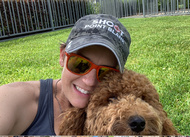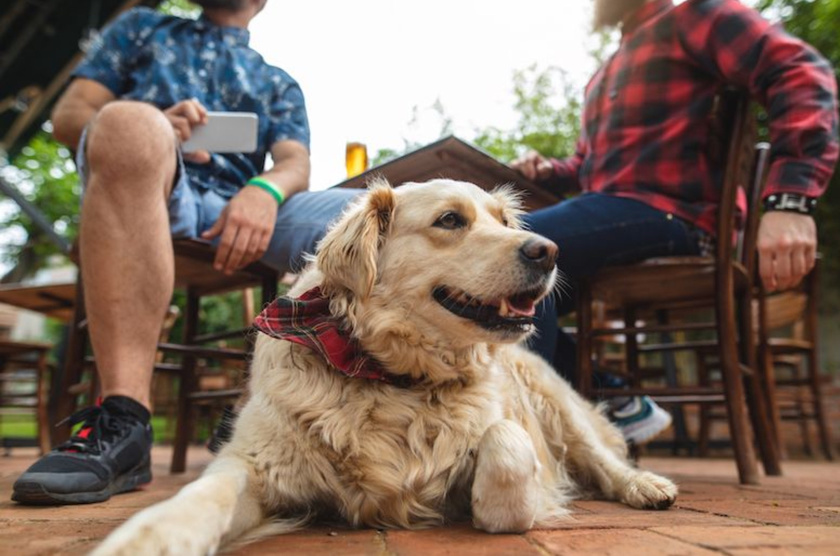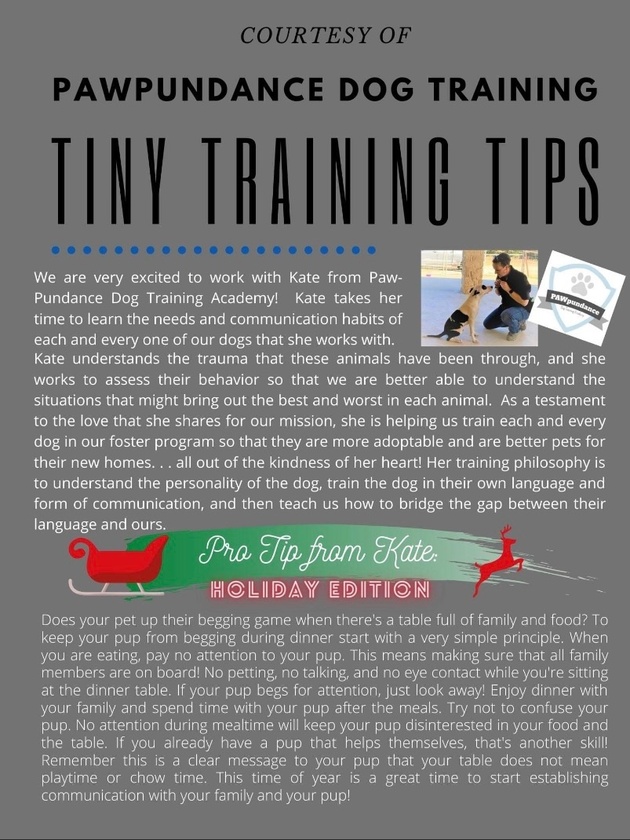
It’s ok! We’re here to help. We speak a little dog and can help translate for both of you. It’s probably just a miscommunication! And we are here to help get you both speaking the same language! Woof!
Connect with the PAWpundance training team and other members of the dog community to discuss better ways to communicate with your furry house guest.
**To get started USE code: TRIAL1month **
(1/6) This is a pup we met yesterday.
When we met her, she was super happy and excited. She actually piddled a little, so we carried her on her back like a baby all the way to the grass. Dogs will try very hard not to pee on themselves so we use that and go with it. She was happy for the snuggles and attention as we rushed out and got her to a patch of grass for her to potty and as soon as she was there she did a really good poo!! Yay Luna!!
Why do dogs pull on the leash?
Because we follow. 😂
I don’t like to have tension on the leash when I walk with pups. If they don’t respond to me calling them to come my way, I can compromise and go their way for a bit. But I will not follow when there is tension on the leash. It’s nuanced. But we can unpack this together!!
This was our walk in the park today. She was clearly unsure of what to do on leash. So instead of trying to use the leash as a means of communication I tried to just keep up with her and when I could talk to her when we needed to change directions. One of the biggest principles I work with is not using the leash as a means of communication. Meaning we walk loose leash and the leash is just there for the city of Houston/safety. When Luna learns appropriate leash skills it means she’s learning to stay within 6 feet of me and I need to stay within 6 feet of her. And it’s a give-and-take. When she has a sniff that she needs to chase I will give in and go with her on occasion. It’s her walk and sniffs and smells are very important to her. But when we clearly need to walk in to go somewhere she needs to respond to me and walk with me as well. So we work together as a team. And when there a puppy like this they think that you as a human walk way too slow. So in the beginning when we teach lease training to a puppy, we really need to pick up the pace and hustle to help them understand the loose leash. Once they start understanding the no tension and the appropriate distance they need to be from us - then we can start walking normally... not like we are training for the US speed walking team - and Luna is the coach.
We worked on some basics that will support this skill inside. But it won’t take long before she’s walking loose leash if she’s getting good cues and consistent reinforcement.
Great job Luna!!
Become a subscriber and follow Luna’s story with us!!
Welcome to PAWpundance Dog Training Academy on Locals.com!
We’re thrilled that you’ve joined our community! PAWpundance is a place for positive, dog-loving people to come together, share experiences, and help each other grow. Locals offers an “ad-free experience,” so even a small contribution helps support our tech and keeps our community thriving.
We want to see your furbabies!
We’re here to assist with any questions you may have about training, behavior, and more. At PAWpundance, we believe in blending knowledge with a bit of fun—expect plenty of paws, puns, and maybe even a dance or two! Together, let’s enjoy some laughs and build stronger relationships with our pups.
Our Philosophy:
We’ve invited another species to live in our homes, and our dogs are much more than accessories; they’re our guests. They don’t speak our language, and like in the movie E.T., we don’t want to be the intimidating figures trying to coerce a scared, confused being. Instead, we want to be like ...
Eye Contact, Eye Contact, Eye Contact!
Reward every glance. Start by reinforcing brief glances, then encourage your pup to hold your gaze a bit longer. Gradually phase out your part of the eye contact—your pup will learn to watch you and adapt to your movements naturally. This approach helps them learn to walk with you without relying on leash cues.
Remember, the leash is purely for safety—not for communication.
Take a look at this video with Meghan and Buckee. Buckee is watching Meghan closely, and she rewards him by making eye contact, smiling, and offering treats. Meghan also looks forward occasionally, teaching Buckee to walk with her in sync.
Notice that Buckee is a reactive pup, so the leash is essential for safety, especially if he responds to something unexpectedly. However, it’s only used for physical control when necessary. When Buckee refocuses, Meghan reestablishes instructional control, and they continue their walk together. She does a fantastic job of engaging with him! In ...
Loose-Leash Walking Tip:
Where you reward makes a big difference! Try using the hand on the same side as your dog when giving treats or praise.
When you reach across your body to reward with the opposite hand, it draws your dog’s nose in front of you, encouraging them to move ahead and potentially start pulling.
In the video of Meghan and Domino, Meghan holds the leash with her left hand while Domino walks on her right. She rewards him by petting and giving treats with her right hand. This keeps Domino walking by her side on a loose leash, rather than in front, pulling her along.
Next time you’re out walking with your pup, try rewarding with the hand on the same side as your dog.
https://twitter.com/wholedogjournal/status/1295508215740932098?s=21
How to teach you pup to be a good dining companion! What a great skill!

https://twitter.com/wholedogjournal/status/1292609106637987840?s=21
This is about counter-surfers, but I love the description of trying to shame dogs. This author, Pat Miller helped me understand this concept in her book the Power of Positive Dog Training.
If you’re still on Twitter, the Whole Dog Journal is a great group to follow. Lots of fantastic info!













